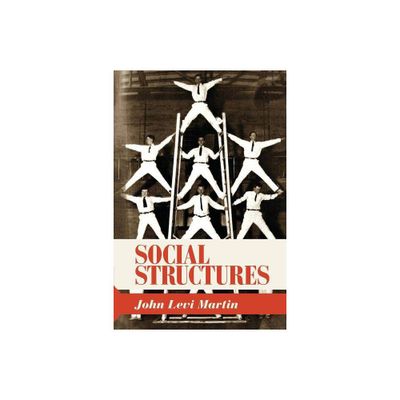Home
Psychological and Social Structures
Loading Inventory...
Barnes and Noble
Psychological and Social Structures
Current price: $48.99


Barnes and Noble
Psychological and Social Structures
Current price: $48.99
Loading Inventory...
Size: Paperback
*Product Information may vary - to confirm product availability, pricing, and additional information please contact Barnes and Noble
Originally published in 1984, this work is organised in three parts. Each part consists of several related chapters. Each chapter explores the assumptions and implications of a closely related group of concepts in depth. Part 1 explores what a structure is. It
considers such notions as content, context, constraint, unity, integrity, and the hierarchical and nucleate forms of organization. Part 2 critically explores the dynamic (energic) conceptualization of psychological and social phenomena. Thus, this part considers such notions as energy, entropy, activity, confirmation, discrepancy, and resistance, as they apply to and affect the stability, activity, and changes observed in psychological and social structures. The relationship among the biological (metabolic), psychological, and social levels of analysis are explored from a rather simplified thermodynamic point of view. In Part 3 brings all these earlier considerations to bear upon the processes by which these structures grow and develop. It explores the concept of development itself, and such related issues as the levels-by-stages model of development, the distinction between intrastructural and intergenerational development, the orthogenic principles, the process of primordial differentiation and integration, development as a dialectical process, and the relationship between growth and development. The Epilogue indicates briefly some of the implications of the present thesis for future empirical and theoretical investigations.
considers such notions as content, context, constraint, unity, integrity, and the hierarchical and nucleate forms of organization. Part 2 critically explores the dynamic (energic) conceptualization of psychological and social phenomena. Thus, this part considers such notions as energy, entropy, activity, confirmation, discrepancy, and resistance, as they apply to and affect the stability, activity, and changes observed in psychological and social structures. The relationship among the biological (metabolic), psychological, and social levels of analysis are explored from a rather simplified thermodynamic point of view. In Part 3 brings all these earlier considerations to bear upon the processes by which these structures grow and develop. It explores the concept of development itself, and such related issues as the levels-by-stages model of development, the distinction between intrastructural and intergenerational development, the orthogenic principles, the process of primordial differentiation and integration, development as a dialectical process, and the relationship between growth and development. The Epilogue indicates briefly some of the implications of the present thesis for future empirical and theoretical investigations.


















